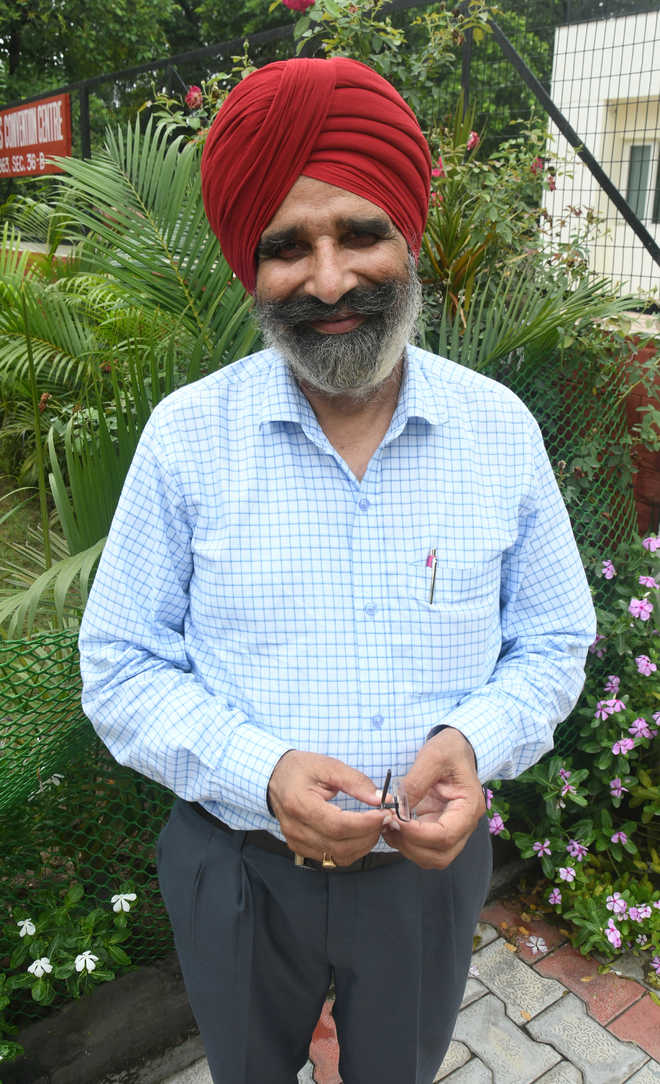
Amarjot Kaur
The humid Sunday afternoon didn’t sit well with many of our sleeves. A patch of sweat had stained Avtar Singh Billing’s crisp shirt too. The recipient of prestigious Dhahan Prize and Shiromani Sahitkar Award, 69-year-old Billing has authored eight Punjabi novels, six collections of short stories and three books on children’s literature.
He’s unquestionably reticent and talks, in a muffled voice, fondly of Punjab’s ‘pinds’ and suggests that he be interviewed at the foyer, right outside the air-conditioned conference hall, of People’s Convention Centre in Sector 36.
He is looking forward to a conversation about his latest book, Rizk (Livelihood). It narrates the story of Canada and America-based young Punjabi immigrants through the life of Banta, the main character of his novel. Also, Khaali Khuha di Katha, the book for which he received the first Dhahan Prize in 2014, is being translated in Hindi.
We take him back to the days when Punjabi Tribune published his stories. “My first story was published in Punjabi Tribune, way back in the May of 1987. That encouraged me to write, and Amrik Singh Banwait, who retired as a deputy news editor of the paper, helped me write my first book Maut De Saye Heinth. It was published in 1991,” he remembers, while mentioning that the book details a morbid account of 1984 anti-Sikh riots.
Mostly, Billing’s fiction novels find their characters in Dhaha region of Punjab, an area around Khamano, Amloh, Khanna and Samrala. Billing has been documenting the cultural and social trends in Punjab, hitting at its reality through nuanced fiction. His book Khedey Sukh Vede Sukh, published in 2002, and Ehna Raha Utte, published in 2007, were awarded the title of ‘best book of the year’ by The Language Department (Bhasha Vibhag) of Punjab. In 2009, he wrote the book Patt Kumbla Gaye, which talked about the growing frustration of jobless youth of Punjab and their drug addiction. Rizk talks about a similar frustration.
He opines, “The youth of Punjab is frustrated. No one seems to understand them and the system has failed them. Last year, I had written a book (Gulabi Nagg Wali Mundri) on how the young generation is breaking away from caste barriers. Rizk is about what makes a young Punjabi person move to Canada or America. It’s livelihood! They do manual labour there, most of the time, but at least they get minimum wages. At least there’s no politicking. They work on clear standards: job according to qualification and wages according to the work done. In India, there aren’t many jobs for youngsters. The public sector is shrinking and we are overpopulated, which makes things worse.”
At the time when no one seems to understand youngsters and their wild ways, Billing’s Rizk brings a waft of comforting pacification. A pertinent detail he saves for the last as answers the cliché question on ‘what made him write this book’. “I feel every writer is dissatisfied with society and he must assign his empathy to the service of the society without preaching, but talking of higher values. We must be idealistic!” he says.


























